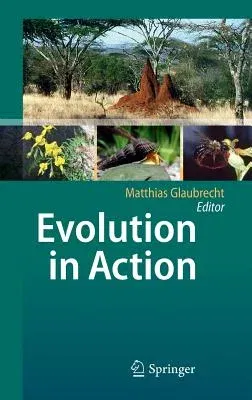Evolution in Action: Case Studies in Adaptive Radiation, Speciation and the Origin of Biodiversity (2010)Hardcover - 2010, 4 August 2010

Qty
1
Turbo
Ships in 2 - 3 days
In Stock
Free Delivery
Cash on Delivery
15 Days
Free Returns
Secure Checkout

Print Length
586 pages
Language
English
Publisher
Springer
Date Published
4 Aug 2010
ISBN-10
3642124240
ISBN-13
9783642124242
Description
Product Details
Book Edition:
2010
Book Format:
Hardcover
Country of Origin:
NL
Date Published:
4 August 2010
Dimensions:
23.62 x
16 x
3.81 cm
ISBN-10:
3642124240
ISBN-13:
9783642124242
Language:
English
Location:
Berlin, Heidelberg
Pages:
586
Publisher:
Weight:
997.9 gm